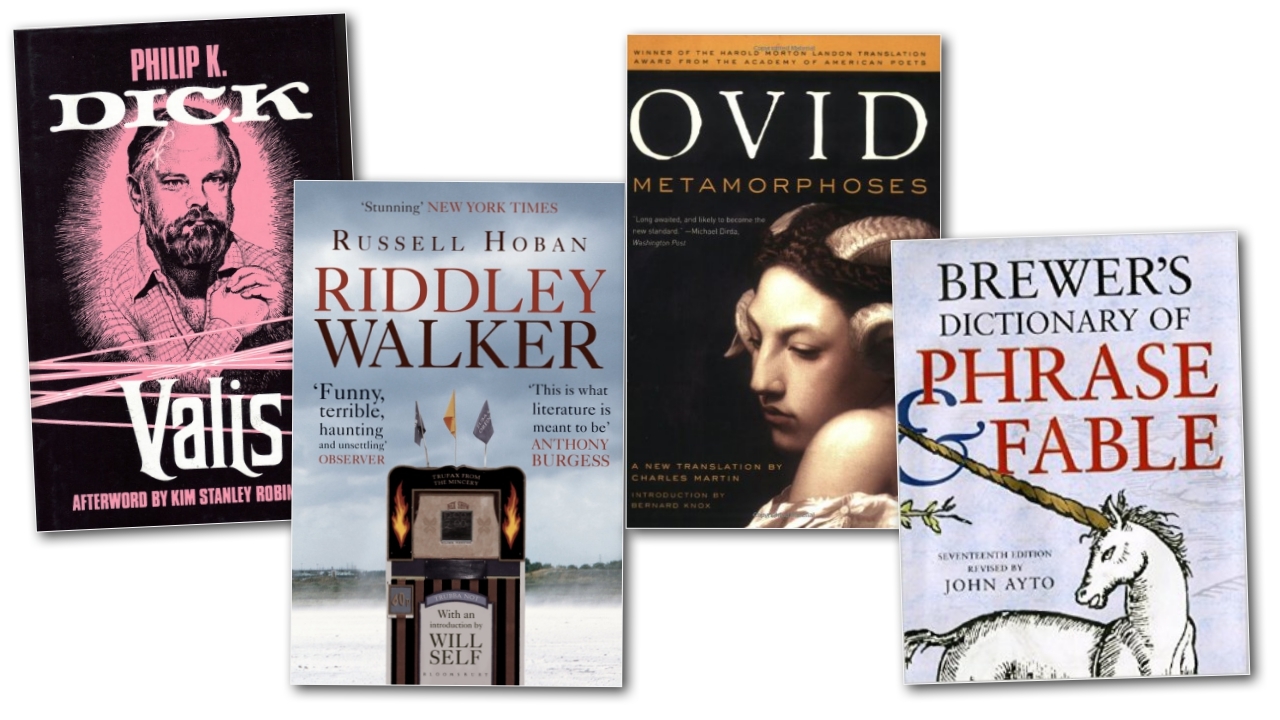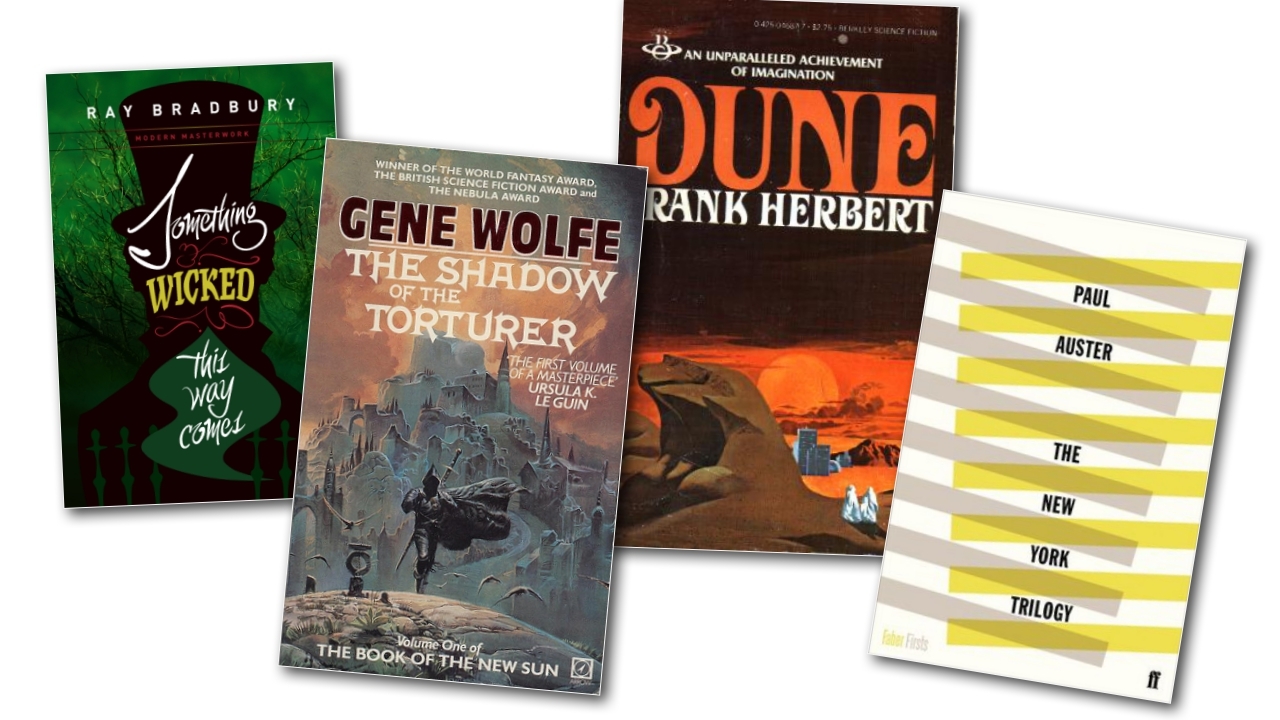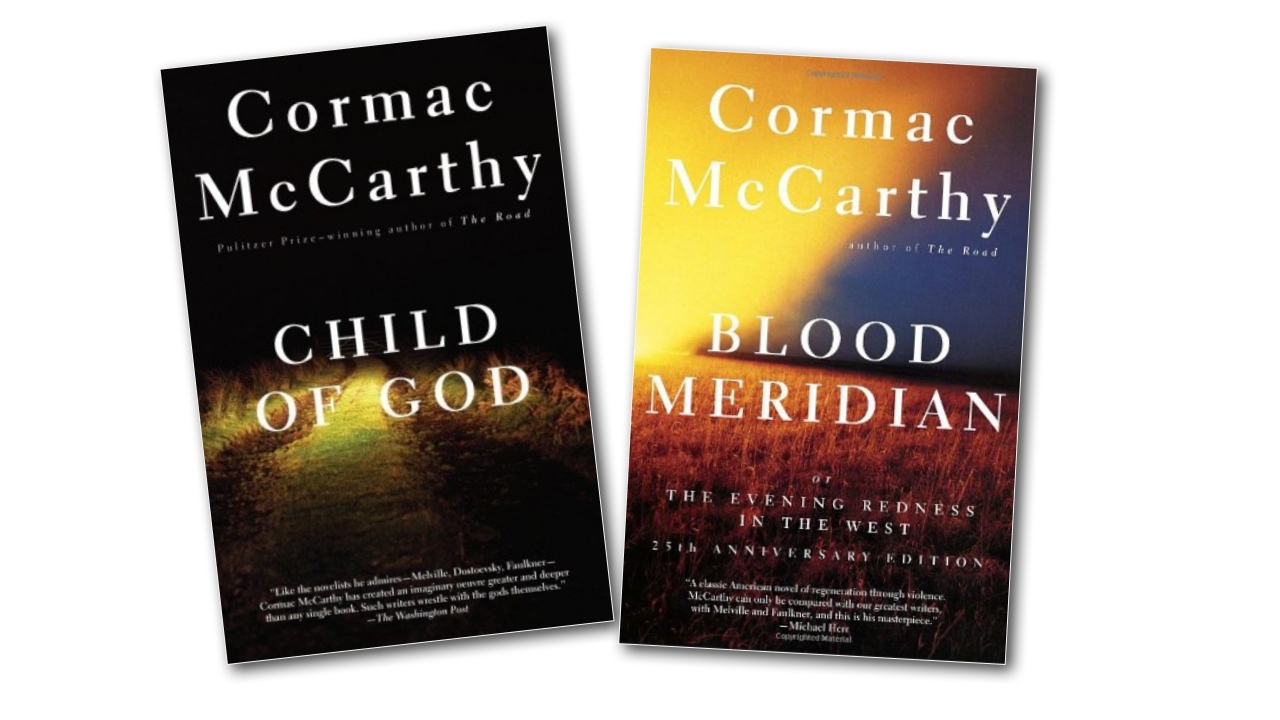Clutch frontman Neil Fallon can easily be counted among the finest rock lyricists of all time, and it’s no secret that he draws inspiration from his favourite books, so what better way to find out more about the band than by finding out about his top 10 reads?
VALIS - Philip K. Dick
By no means Dick’s most accessible novel (sadly, Dick left this reality before he could complete the work), the VALIS trilogy is, I think, his most frightening portrayal of the wavering line between genius and madness. Conspiracy and paranoia necessitate each other. And VALIS has both in spades. Like so many of his works, VALIS was ahead of its time. Dick was a trailblazer in what has now become stock Hollywood plots. In VALIS, he cleverly repurposes The Black Knight Satellite theory and I, in turn, shamelessly lifted “pink rays from the ancient satellite” for the lyrics to Burning Beard.
Riddley Walker - Russell Hoban
Needles to say, Riddley Walker was the inspiration to the song The Rapture of Riddley Walker [from 2007’s From Beale Street to Oblivion]. It’s a tough read at first, a good deal of the narration is a phonetic version of English spoken many centuries after a nuclear holocaust. England, and presumably the world, has fallen into another dark age. Hoban creates a completely believable dystopia, one that points out how much we have accomplished and how terribly fragile our civilization is.
Brewer’s Dictionary of Phrase & Fable
Yes, it’s a reference book. But it’s the most entertaining one I know and it has bailed me out of many creative jams. Where else will you go directly from Twelve Tribes of Israel to Twickenham (see Billy William’s Cabbage Patch)?
Ovid - Metamorphoses
Written around 8 A.D., Ovid’s Metamorphoses tells the history of mankind and the immortals through the lens of mythology. It is violent, vivid and often very funny. One of the great things about Metamorphoses is one can open it anywhere and not feel lost. I suppose that is one of the Ovid’s points though, reality is an endless series of metamorphoses not subject to linear time. It’s also a goldmine of heavy metal lyrics.

Something Wicked This Way Comes - Ray Bradbury
Something Wicked This Way Comes is dear to my heart. I first read it during an Indian summer when I was around 13, the same age as the novel’s protagonists. The mood of those early fall days made Bradbury’s words come alive. As far as I know, this was the book that introduced the world to the supernatural circus trope. HBO’s Carnivále is good, but not nearly as magical as the dark carny world created by Bradbury.
The Book of The New Sun - Gene Wolfe
The Book of the New Sun is a 5 part series. It is easily my favorite work of fantasy, particularly the first two books, The Shadow of the Torturer and Claw of the Conciliator. The hero is a torturer, banished for the crime of showing mercy. The series reads like a Boris Vallejo painting come to life. One of my favorite aspects of Wolfe’s work is his very oblique references to our modern age, leaving the reader to wonder what the hell happened to drive us to such a dark future (never mind the dying sun).
Dune - Frank Herbert
Herbert’s Dune needs no introduction. It’s the best science fiction book ever written. Don’t argue. It’s pointless. Incidentally, the best attempt to bring Dune to the big screen is a documentary about a Dune adaptation that never happened, Jodorowsky’s Dune. It’s an unbelievable tale involving, Pink Floyd, H.R. Geiger and the mad genius of Alejandro Jodorowsky.
The New York Trilogy - Paul Auster
The New York Trilogy is a crime noir mind bender. Auster is similar to Philp K. Dick in that he is self-referential and deals with the confluences of sanity and insanity, reality and unreality. My favorite episode in the series is the wanderings of the character Stillman. His seemingly random routes through Manhattan eventually spell out a message on a map. Though thoroughly analog, Auster predicted GPS artistry over thirty years ago.

Blood Meridian - Cormac McCarthy
I believe Cormac McCarthy is one of the best writers of our age. McCarthy has an unbelievable ability to paint beautiful images with an economy of words and then interrupt those vistas with unspeakable violence. Make no mistake, Blood Meridian could easily be shelved in the horror section. Set in the American west around 1850, McCarthy offers a brutally honest portrayal of America’s barbaric application of manifest destiny. Judge Holden is possibly the most terrifying villain ever imagined.
Child of God - Cormac McCarthy
Actually, no. Lester Ballad is the most terrifying villain ever imagined.

- The best books about music ever written
- The best eReaders for music book bingeing
